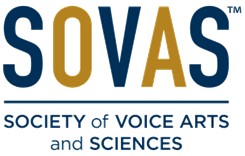
You’ve heard the phrases “write-offs” and “deductions”, now let’s learn how they are applied to voice over actors. This article will give you a comprehensive list of the specific expenses available as deductions to you, the voice over actor.
WHAT IS A DEDUCTION AND HOW DO I USE IT?
The IRS allows every trade or business the use of specific job-related expenses to be subtractions from income when determining taxable income. In basic terms, expenses are deductible if the cost is directly related to the acting activity and considered ordinary and necessary.
Voice over acting is considered a trade or business. Deductions are available no matter the amount of income earned. The one thing to be aware of is the profitability rule and to not be considered a hobby by the IRS (and therefore losses would be disallowed), one needs to show a profit in three out of five consecutive years.
WHAT ARE SPECIFIC EXAMPLES OF DEDUCTIONS?
Typical deductible expenses for actors include, but are not limited to:
- Business travel: Airfare or other transportation costs, hotel or other lodging expenses, and a portion of the cost of meals during travel
- Local travel: Trips to performances, rehearsals, acting classes, auditions, and to pick up supplies (ex.: subway fares, Uber/Taxi, car mileage, etc.)
- Agent fees, Talent Manager fees and union dues
- Office expenses/Home office deductions: The cost of any workspace you use regularly and exclusively for your business, regardless of whether you rent or own it.
- Property and supplies used for acting: The cost of video cameras, sound equipment, digital cameras, theater and film books, musical scores, computers, phones, etc.
- Education: Acting classes, voice and coaching lessons, workshops and seminars
- Promotional expenses: Photos, videos, websites, listings in professional registries, advertisements in trade publications, business cards, headshots, demo tapes and other promotional expenses
- Makeup, hair care and wardrobe: If your job requires it (but usually not the case with a voice over)
- Subscriptions: The cost of specialized magazine, book, journal, newsletter, and other subscriptions directly related to your business.
- Legal and professional services: Fees paid to attorneys, accountants, consultants, and other professionals including advertising and retirement plan costs.
- Premiums for insurance that you buy to protect your business and for health insurance
- “Educational entertainment”: Tickets and subscriptions that enable you as an actor to learn, research and keep up with what’s going on in your industry.
WHAT DO I NEED FOR PROOF?
More so than other trade or businesses, performing artists have a slew of deductions available to them but to properly capture them, you need to have appropriate support. Receipts and documentation are a must! You don’t need to send your accountant the shoebox full of receipts, but you do need to be able to substantiate any deduction claimed with proof should you end up being audited. In the case where you are questioned and proof isn’t available, the IRS could impose a 20 percent penalty for purposefully understating your income.
THE BOTTOM LINE
The list of available tax deductions is more complicated than this brief overview describes. There obviously are more than listed above, but these are the bigger ones. Some expenses are depreciated or amortized, meaning you can deduct a small amount of the cost each year over several years vs taking the full amount upfront. With the above, hopefully you now have a good introduction to the basics and now know what to get help on. The key thing to remember is to only deduct items that are “ordinary and necessary expenses for your line of work” and to keep documentation as proof of the expense. As the official accountants for the SOVAS, Schulman Lobel has the experience providing accounting and tax solutions for Voice Actors and Artists alike.
Have a question? Use the contact form below to speak with one of our talented partners or principles.

